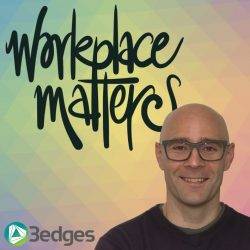To provide the best experiences, we use technologies like cookies to store and/or access device information. Consenting to these technologies will allow us to process data such as browsing behaviour or unique IDs on this site. Not consenting or withdrawing consent, may adversely affect certain features and functions.
The technical storage or access is strictly necessary for the legitimate purpose of enabling the use of a specific service explicitly requested by the subscriber or user, or for the sole purpose of carrying out the transmission of a communication over an electronic communications network.
The technical storage or access is necessary for the legitimate purpose of storing preferences that are not requested by the subscriber or user.
The technical storage or access that is used exclusively for statistical purposes.
The technical storage or access that is used exclusively for anonymous statistical purposes. Without a subpoena, voluntary compliance on the part of your Internet Service Provider, or additional records from a third party, information stored or retrieved for this purpose alone cannot usually be used to identify you.
The technical storage or access is required to create user profiles to send advertising, or to track the user on a website or across several websites for similar marketing purposes.
 Microsoft’s blueprint for its new headquarters
Microsoft’s blueprint for its new headquarters










 Chilly offices mean that over half (57 percent) of office workers say they’d be more productive working from home when the weather gets colder. Their main reason is that too many workplaces (50 percent) do not handle weather complaints effectively. According to Office Genie’s survey of 1,105 British office workers, only 6 percent of employers encourage staff to work remotely in the colder weather. Bosses are also reluctant to let employees work flexibly instead of freeze, with only 16 percent of companies adopting flexible working patterns in the colder months. Even simple provisions such as supplying additional heaters are not in place in 70 percent of offices – failing to comply to the government’s Health and Safety Executive’s advice. Of the 1,105 office workers we surveyed, 50% said complaints about office temperatures aren’t dealt with effectively by management. And while HSE guidelines state workplaces shouldn’t dip below 16°C but when we asked workers their ideal office temperature, 20°C was the resounding answer.
Chilly offices mean that over half (57 percent) of office workers say they’d be more productive working from home when the weather gets colder. Their main reason is that too many workplaces (50 percent) do not handle weather complaints effectively. According to Office Genie’s survey of 1,105 British office workers, only 6 percent of employers encourage staff to work remotely in the colder weather. Bosses are also reluctant to let employees work flexibly instead of freeze, with only 16 percent of companies adopting flexible working patterns in the colder months. Even simple provisions such as supplying additional heaters are not in place in 70 percent of offices – failing to comply to the government’s Health and Safety Executive’s advice. Of the 1,105 office workers we surveyed, 50% said complaints about office temperatures aren’t dealt with effectively by management. And while HSE guidelines state workplaces shouldn’t dip below 16°C but when we asked workers their ideal office temperature, 20°C was the resounding answer.























December 7, 2017
What P T Barnum can teach us about the facilities management circus
by Mark Eltringham • Architecture, Comment, Facilities management, Workplace
More →